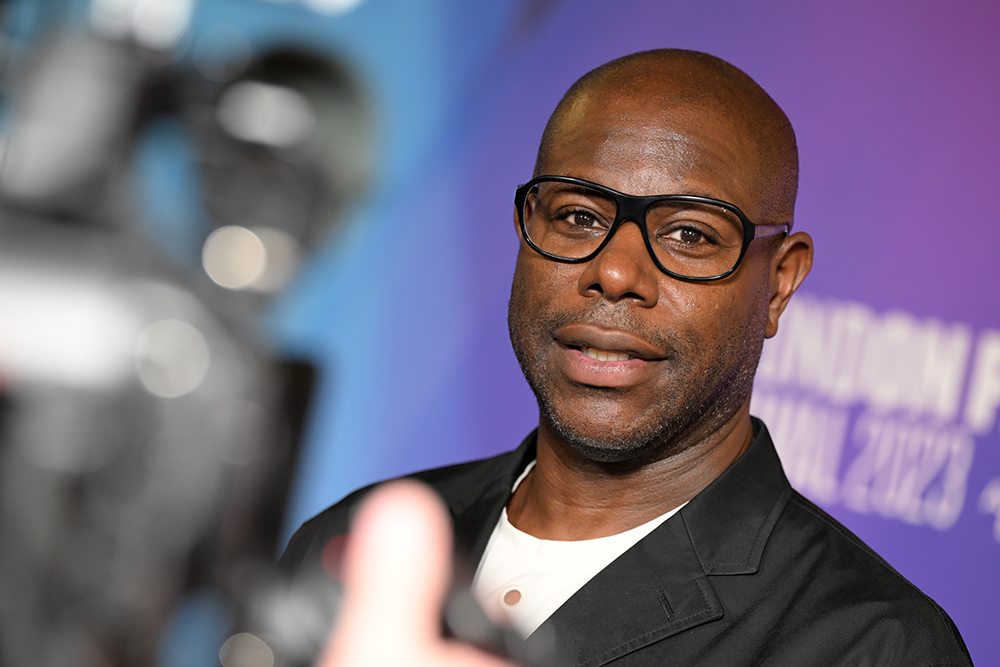Steve McQueen’s Blitz: A poignant exploration of wartime resilience
Steve McQueen is back to captivate audiences at the BFI London Film Festival with Blitz, marking his return to the festival’s spotlight. Diverging greatly from his 2018 crime thriller Widows, Blitz offers an intense portrayal of London during World War II.
A story forged in the fires of war
Blitz transports viewers to wartime London, standing under the relentless threat of German bombers. By night, citizens scramble to underground shelters, uncertain of what they’ll find above ground by daybreak. McQueen deftly narrows the narrative focus to a few harrowing days, a technique that amplifies the tension and intimacy of the story.
At the heart of Blitz lies the heartbreaking journey of Elliot Heffernan, a newcomer portraying a determined 9-year-old boy evacuated from the city, only to return in search of his mother, played by Saoirse Ronan. Their desperate quests, set against the backdrop of war-torn London, weave an emotional tapestry of courage and heartbreak.
From concept to creation
McQueen, an acclaimed Oscar and BAFTA winner, first conceived the idea for Blitz in 2003 while serving as the U.K.’s official war artist in Iraq. Accompanying British troops, McQueen experienced a camaraderie underscored by the harsh realities of war. This period ignited his interest in historical resilience, particularly the British spirit during The Blitz.
Years later, while conceptualizing his miniseries Small Axe, McQueen stumbled upon a photograph of a young Black boy waiting for evacuation. This image became the kernel for Blitz, threading together historical accounts, insights from the Imperial War Museum, and consultations with historian Joshua Levine to create a narrative rich in authenticity.
A fresh lens on diversity
Unlike many WWII films, Blitz shines a light on the diversity of 1940s London. McQueen emphasizes that London was far more cosmopolitan than often presented on screen. This enriched portrayal includes contributions from actors like Harris Dickinson, Stephen Graham, and Kathy Burke, as well as musicians Paul Weller and Benjamin Clementine.
Musical enrichment
Blitz also introduces an original song by McQueen, “Winter’s Coat,” co-written with frequent collaborator Nicholas Britell. The song, poignantly performed by Ronan, encapsulates the emotional core of the film. Ronan’s unexpected singing talent was a joyous revelation for McQueen, adding another layer to her already stellar performance.
Historical depth and accuracy
McQueen’s dedication to historical fidelity is evident throughout Blitz. From recreating events such as the bombing of the Café de Paris to interweaving real characters like the shelter-patrolling Ife and NHS architect Mickey Davis, the film meticulously reconstructs the wartime landscape. This commitment to authenticity enriches the narrative, making the past viscerally present.
Emotional resonance amidst modern parallels
The timeless relevance of a war film comes into sharp focus as McQueen acknowledges the contemporary echoes of conflict. The tragic events unfolding in the Middle East during the making of Blitz lent a heightened urgency to the film’s message. McQueen’s narrative, seen through a child’s eyes, challenges viewers to reflect on broader themes of war, resilience, and the human spirit.
McQueen invites audiences to adopt a child’s unflinching perspective on conflict, questioning our collective numbness to violence and urging a return to a moral clarity often seen in youth. This potent viewpoint makes Blitz not just a historical recount but a poignant commentary on present-day humanity.
Discovering new talent: Elliot Heffernan
The casting of Elliot Heffernan as the young lead in Blitz was a stroke of genius. His audition stood out for a profound stillness and gravitas that McQueen found compelling. Heffernan’s ability to convey deep emotion without words echoes the silent movie era, proving his exceptional talent and the profound impact of his performance.
A diverse musical cast
Casting musicians Paul Weller and Benjamin Clementine was another inspired choice by McQueen. Both brought unique authenticity to their roles, enriching the film’s narrative fabric. Weller’s transition from music to acting, supported by intensive coaching, underscores McQueen’s keen eye for talent and character portrayal.
Reflections on wartime London
The historical accuracy of Blitz is staggering. The nightclub bombing scene at the Café de Paris, the presence of diverse communities, and the real-life stories embedded in the film articulate the vibrancy and complexity of wartime London. McQueen’s portrayal transcends typical war movie tropes, replacing them with a multifaceted lens revealing a city’s true spirit during its darkest hours.
Did you enjoy this article? Share it on your social channels and let us know your thoughts! Don’t miss out on the latest updates! Follow us on social media to stay informed about the newest releases.

 Italian
Italian







